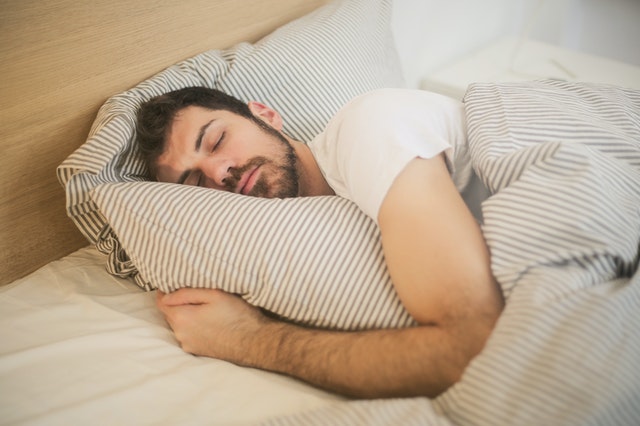Many adults regularly experience problems sleeping. The American Sleep Association estimates that 50 to 70 million U.S. adults currently suffer from sleep disorders.1 When deep sleep is affected, this may decrease the body’s ability to function normally.
What is deep sleep?
During deep sleep, slow waves are detectable within the brain.2 The time spent in deep sleep is beneficial for the health of the brain and cardiovascular system.2 It is also essential for maintaining your brain’s capacity to learn efficiently on a daily basis.3
Deep sleep typically lasts anywhere from 13% to 23% of the total sleep duration.4,5 This stage is also important for regulating proper growth and metabolism, as well as replenishing the immune system.6
Studies show that the quality of sleep declines with age, as older adults tend to experience reduced sleep duration and a decrease in slow waves.7 Therefore, older adults spend less time in deep sleep during the night.
Researchers are currently investigating new technologies to enhance the slow waves associated with deep sleep. There is a growing proportion of older adults in our society that would greatly benefit from improved deep sleep, given its association with healthy aging.7
Improving deep sleep with auditory brain stimulation
A new study published in the journal Communications Medicines explored how deep sleep could be improved by wearing earphones that play certain sounds while you sleep.2
The user is not consciously aware of these sounds as they play throughout the night.
The ‘SleepLoop’ device is a user-friendly, non-invasive headband that monitors brain activity during sleep and gives off short sounds to help synchronize neurons.2
The custom software can be adjusted to any individual to help activate slow waves in the brain and improve deep sleep.2
In the first clinical study on SleepLoop, participants aged 60 to 80 years old wore the headband over the course of four weeks.2 Data showed that the device was successful at enhancing deep sleep.7
Overall, these findings have promising clinical implications. In particular, the technology may be used down the line to reduce susceptibility to neurological diseases such as Alzheimer’s and Parkinson’s disease, in which patients suffer from degenerated slow waves during sleep.7
As of now, developers of the SleepLoop have stated that the device must be used under the supervision and prescription of a doctor.2
The future of auditory brain stimulation remains bright and further studies are encouraged to investigate the side effects of this technology.7
References
- Sleep Statistics: Data About Sleep Disorders | American Sleep Association. Accessed May 9, 2022. https://www.sleepassociation.org/about-sleep/sleep-statistics/
- Enhancing deep sleep | EurekAlert! Accessed May 9, 2022. https://www.eurekalert.org/news-releases/949098
- Fattinger S, De Beukelaar TT, Ruddy KL, et al. Deep sleep maintains learning efficiency of the human brain. Nat Commun. 2017;8. doi:10.1038/ncomms15405
- Deep Sleep: What it is and How Much You Need | Sleep Foundation. Accessed May 9, 2022. https://www.sleepfoundation.org/stages-of-sleep/deep-sleep
- Colten HR, Altevogt BM. Sleep disorders and sleep deprivation: An unmet public health problem. Sleep Disord Sleep Deprivation An Unmet Public Heal Probl. Published online October 13, 2006:1-404. doi:10.17226/11617
- Patel AK, Araujo JF. Physiology, Sleep Stages. StatPearls. Published online April 22, 2018. Accessed May 9, 2022. http://www.ncbi.nlm.nih.gov/pubmed/30252388
- Lustenberger C, Ferster ML, Huwiler S, et al. Auditory deep sleep stimulation in older adults at home: a randomized crossover trial. Commun Med. 2022;2(1):1-16. doi:10.1038/s43856-022-00096-6



